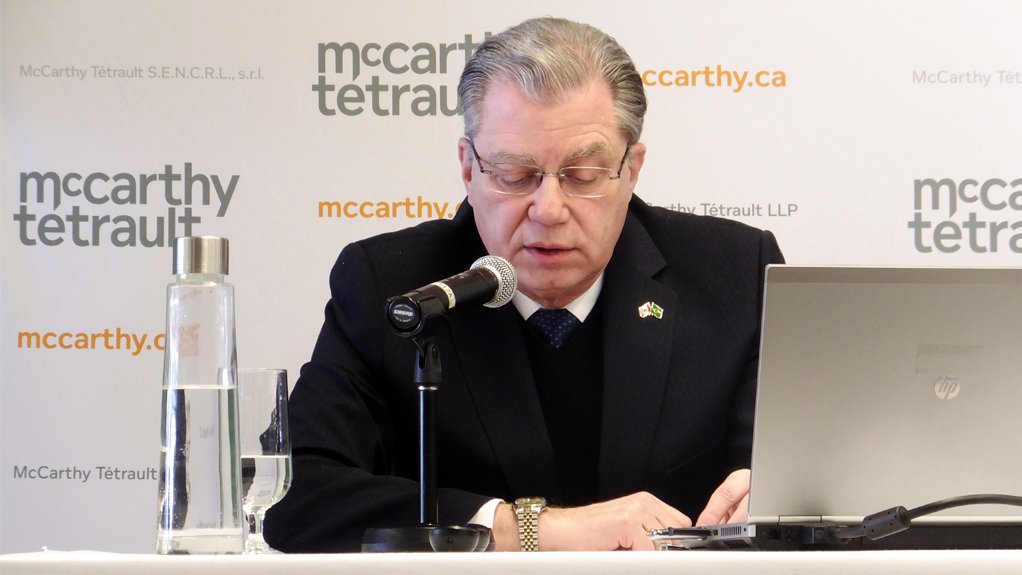
Brazilian ambassador to Canada Pedro Fernando Brêtas Bastos.
Photo by: Simon Rees
TORONTO (miningweekly.com) – Brazil sought to boost the level of bilateral trade with Canada, particularly in the sphere of mining, the country’s ambassador to Canada Pedro Fernando Brêtas Bastos told audience members at the Brazil-Canada Chamber of Commerce mining breakfast on Monday.
The level of bilateral trade between the two nations reached $5-billion in 2014, up from $1.7-billion in 2000. However, this was down from a high of $6.5-billion achieved in 2012.
“But I see no reason why we shouldn’t equal or surpass that as the global economy recovers,” Brêtas Bastos said. "However, it’s up to us to make the effort and seize every opportunity.”
At the forefront of Brazil’s presence in the Canadian mining sector were steelmaker Gerdau and the mining senior Vale, which was currently focused on nickel mining and processing at several locations across Canada.
In the meantime, Brazil ranked eleventh for Canadian direct investment abroad, with many attracted by the country's vast resource potential.
Current market conditions and the muted performance of metals prices had been a concern for Brazil. “But we’re well aware of the complex situation with the global economy, falling commodity prices and diminished growth prospects in several key markets,” Brêtas Bastos noted, adding that these were all parts of the puzzle and Brazil, as well as many other countries, had been affected by these trends.
However, the ambassador also pointed out that the revival of the US economy would act as a fillip for economies across the Americas. In addition, the Brazilian real had depreciated in value against the US dollar, which represented an attractive discount for those buying Brazilian material in greenbacks.
At a domestic level, the reduction in oil prices would assist in tapering domestic inflation.
The country’s primary financial objective was to maintain a fiscal balance, with several economic initiatives unveiled since the January re-election of President Dilma Rousseff. “The government aims to achieve a budget surplus of 1.2% of gross domestic production in 2015, excluding maintenance of interest,” Brêtas Bastos explained. “And this goal can be achieved without draconian cuts.”
For many mining companies, both Brazilian and those from Canada investing in Brazil, moves to implement structural reform would be welcomed as well, particularly efforts to cut red tape and create a predictable regulatory framework.
Maintaining investment levels to expand Brazil’s infrastructure was also important and Brêtas Bastos highlighted the role the private sector had performed in this regard over the past 20 years, noting that it had invested almost $300-billion in vital areas such as roads, ports, airports, energy and oil and gas. This had been essential not just for the mining industry but for the country as a whole.
Meanwhile, the passage of a new, updated mining code through the National Congress continued. “Let’s hope Congress approves the Bill this year. It’s an important step that will facilitate investment for the development of natural resources in Brazil and the framework will lead to greater competitiveness,” Brêtas Bastos said.